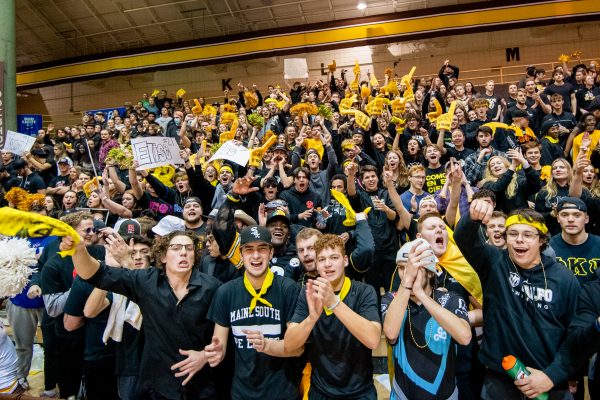Safety and Security
Students are encouraged to assist in ensuring that the exterior doors of residence halls remain closed and locked. In addition, students are encouraged to lock the door to their rooms when they are absent from the room or when they are sleeping. Students who compromise the safety of other residence hall students will be subjected to disciplinary action. Examples of such behavior include but are not limited to, propping open exterior doors, intentionally allowing non-residents access to the building, failure to escort guests, duplicating and/or loaning keys, and damage to lock mechanisms or other security devices.
For safety reasons, certain additional behaviors are also prohibited in the residence halls. These include, but are not limited to:
- removal of window screens
- entrance to roof areas
- sporting activities in corridors or other areas of the hall not designated for such activities
- throwing or dropping objects from windows
- sealing windows or doors closed that would prevent entry in cases of emergency
The residents of a particular room are responsible for what happens in their room. Therefore, it may not be in one’s best interest to allow others to have unsupervised access to their room or to leave one’s room unlocked.
For security reasons, lost student room keys will necessitate a lock core change. A work order will be provided to Facilities Management by the RLC for the appropriate building. The appropriate fee will be charged to the student account to cover the cost of the new keys, a new lock core for the student room, and external and internal building access keys where appropriate. The student is responsible for making payment for this fee to the Student Accounts Office. Specific costs related to lock core and key charges for each individual building are available from the RLC.
University residence hall main entrances are locked 24 hours a day.
For reasons of fire safety, the burning or possession of burnt candles and incense is not allowed in residence halls. Candles or incense that have burnt residue will be confiscated. Students residing in university-operated apartments may use outdoor grills on the ground at a minimum of five (5) feet from the building. Grills may not be used on decks or landings. Storing of charcoal and other flammable products is not permitted in university-operated residence halls and apartments.
Fire alarms and firefighting equipment are to be used only for their intended purpose. The setting off of false fire alarms or the starting of fires will result in disciplinary action. Periodic fire drills are required by Indiana State law. The following rules are to be followed in the event of a fire drill or an actual fire.
- At the sound of the fire alarm, evacuate the building as quickly as possible.
- Be sure windows are closed, drapes open, and the room door is closed and locked.
- Take along a towel and coat and wear some kind of shoes.
- After evacuation, move to a safe distance away from the building.
- Return to the building on the all-clear signal.
[Note: Students who violate policies related to fire safety will ordinarily be required to pay a monetary fine and participate in an educational program, which may include a fire safety demonstration sponsored by the Valparaiso Fire Department.]
In case of tornado alert:
- A tornado watch or warning will be announced through local radio and television.
- Proceed to the lowest floor, which can be reached before high winds or the tornado strikes. Never use the fire alarm for notification purposes.
- Sit in central corridors covering your head with folded arms.
- Stay away from windows.
- Remain calm. Try to prevent panic amongst fellow residents.
- If a tornado strikes, do not move to see the damage until the storm is well out of the area.
- In open country, move away from the tornado’s path at a right angle. If there is no time to escape, lie flat in the nearest depression, such as a ditch or ravine.
